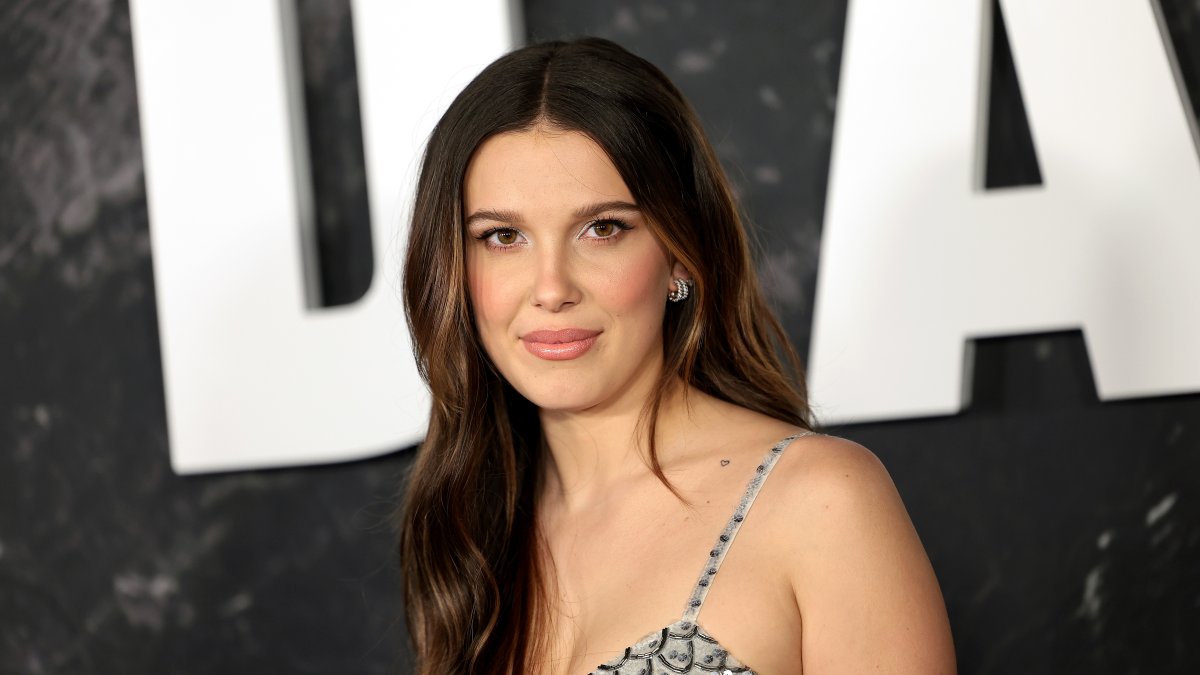Navigating The Complexities Of Millie Bobby Brown Rule 34
The internet, a vast and often unpredictable landscape, is home to a myriad of communities and content, some of which delve into controversial and ethically challenging territories. One such phenomenon, often discussed in hushed tones or behind digital curtains, is "Rule 34," an internet adage stating that "if it exists, there is porn of it." This concept extends far beyond fictional characters, unfortunately encompassing real individuals, including public figures and celebrities. Among the names that frequently surface in discussions related to this rule is that of young actress Millie Bobby Brown, a talented artist who rose to global fame at an early age.
The presence of "Millie Bobby Brown Rule 34" content online raises significant questions about digital ethics, privacy, consent, and the responsibility of online platforms. While the internet offers unparalleled opportunities for creativity and connection, it also presents challenges when boundaries are crossed, particularly concerning the non-consensual sexualization of individuals. This article aims to explore the multifaceted aspects of this phenomenon, shedding light on its origins, its implications, and the broader societal issues it reflects, all while maintaining a respectful and informative stance on the topic.
Table of Contents
- Millie Bobby Brown: A Brief Biography
- Understanding Rule 34: Origins and Evolution
- Rule 34's Application to Celebrities: The Ethical Minefield
- The Millie Bobby Brown Rule 34 Phenomenon
- The Real-World Impact on Individuals
- Combating Harmful Content and Promoting Digital Responsibility
- Supporting Victims and Advocating for Change
- Conclusion
Millie Bobby Brown: A Brief Biography
Before delving into the complexities of "Millie Bobby Brown Rule 34," it's essential to understand the subject herself. Millie Bobby Brown is a British actress and model who gained international recognition for her role as Eleven in the Netflix science fiction horror series Stranger Things. Born on February 19, 2004, in Marbella, Spain, to British parents Kelly and Robert Brown, she moved to Orlando, Florida, in 2011. Her acting career began early, with guest appearances in various television shows before her breakout role in 2016.
- Olivia Thirlby
- Show Off Your Favorite Videos To The World
- Tupac Birthday
- Ronnie In The Diplomat
- Jc Chasez Young
Her portrayal of Eleven earned her critical acclaim, including two Primetime Emmy Award nominations for Outstanding Supporting Actress in a Drama Series, making her one of the youngest nominees in the category's history. Beyond Stranger Things, Brown has starred in films like Godzilla: King of the Monsters (2019), Enola Holmes (2020), and Godzilla vs. Kong (2021). She has also ventured into production, becoming one of the youngest UNICEF Goodwill Ambassadors. Her rapid ascent to global stardom means she has been in the public eye since a very young age, a factor that unfortunately contributes to her becoming a target for online phenomena like Rule 34.
Personal Data and Biodata: Millie Bobby Brown
| Attribute | Detail |
|---|---|
| Full Name | Millie Bobby Brown |
| Date of Birth | February 19, 2004 |
| Age (as of 2024) | 20 years old |
| Place of Birth | Marbella, Andalusia, Spain |
| Nationality | British |
| Occupation | Actress, Producer, Model |
| Known For | Eleven in Stranger Things, Enola Holmes in Enola Holmes |
| Awards/Nominations | Primetime Emmy Award nominations, Screen Actors Guild Awards |
| Notable Roles | Stranger Things, Godzilla franchise, Enola Holmes |
| Philanthropy | UNICEF Goodwill Ambassador |
Understanding Rule 34: Origins and Evolution
Rule 34 is an internet meme that originated in 2003, asserting that "if it exists, there is porn of it." Initially, this rule primarily applied to fictional characters from various media, such as video games, cartoons, and anime. The provided data hints at this broad application, noting that content can range from "pokemon, my little pony, other hentai, whatever you want." This indicates that the scope of Rule 34 is incredibly wide, encompassing beloved childhood characters and niche interests alike. It reflects a certain corner of internet culture where creative expression, however explicit, is explored without traditional boundaries, often blurring the lines of what is considered acceptable or appropriate.
Over time, the application of Rule 34 has unfortunately expanded beyond fictional realms to include real individuals, particularly public figures and celebrities. This evolution marks a significant shift, moving from imaginative fan art to content that can directly impact a real person's privacy and dignity. The internet's anonymity and the ease of digital manipulation have fueled this expansion, making it easier for individuals to create and share content without immediate repercussions, blurring the lines between fantasy and reality in deeply problematic ways. The transition from fictional characters to real people is where the ethical challenges of Rule 34 become most pronounced.
- Birthstone Aries
- Erom
- Donkey Smile
- %C3%B0%C3%B0%C3%B0%C3%B0%C3%B1%C3%B0%C3%B0%C3%B1 %C3%B1%C3%B0%C3%B0%C2%BA%C3%B0%C2%B5%C3%B1 %C3%B0%C3%B1%C3%B0%C2%B5%C3%B1
- Ronnie The Diplomat
Rule 34's Application to Celebrities: The Ethical Minefield
When Rule 34 extends to celebrities, it enters a highly problematic and ethically fraught territory. Unlike fictional characters, celebrities are real people with rights to privacy, dignity, and bodily autonomy. The creation and dissemination of explicit content featuring real individuals without their consent constitute a severe violation of these rights. The very notion of "Millie Bobby Brown Rule 34" highlights this ethical minefield, as it refers to the non-consensual sexualization of a public figure, often through manipulated images or fabricated scenarios. This kind of content not only disrespects the individual but also contributes to a broader culture of digital exploitation.
The Critical Issues of Consent and Privacy
At the heart of the ethical concerns surrounding celebrity Rule 34 content are the fundamental principles of consent and privacy. Celebrities, despite their public personas, are entitled to their private lives. Explicit content created without their explicit consent is a form of digital sexual assault and harassment. The provided data includes a disturbing fictional scenario that illustrates this point: "Millie bobby brown's super fan, scott, manages to catch a glimpse of her in the changing room of the boutique she was shopping at,He decides to cash in on the once in a lifetime opportunity and try to get some sneak shots of her while she was trying on clothes." While this is a fictional narrative, it underscores the voyeuristic and non-consensual nature that often underpins such content. It depicts a fantasy of violating privacy, which, when translated into visual media, becomes a tangible violation of an individual's personal space and dignity.
Furthermore, many celebrities, including Millie Bobby Brown, achieve fame at a young age. This introduces an additional layer of ethical complexity regarding the sexualization of minors. The provided data points to a specific date and
- How Old Is 1984
- Jaimy Jackson
- %C3%B8%C3%B9%CB%86 %C3%B9%C3%B9%CB%86%C3%B8%C3%B9%C5%A1%C3%B8%C3%B9%C5%A1%C3%B8%C3%B9%CB%86
- Ronnie In The Diplomat
- Bill Higgins Fbi

Millie Bobby Brown addresses criticism around her accent changing – NBC

Millie Bobby Brown Now 2024 - Debora Rosabella

Millie Bobby Brown | Age, Husband, Movies, TV Shows, & Parents | Britannica